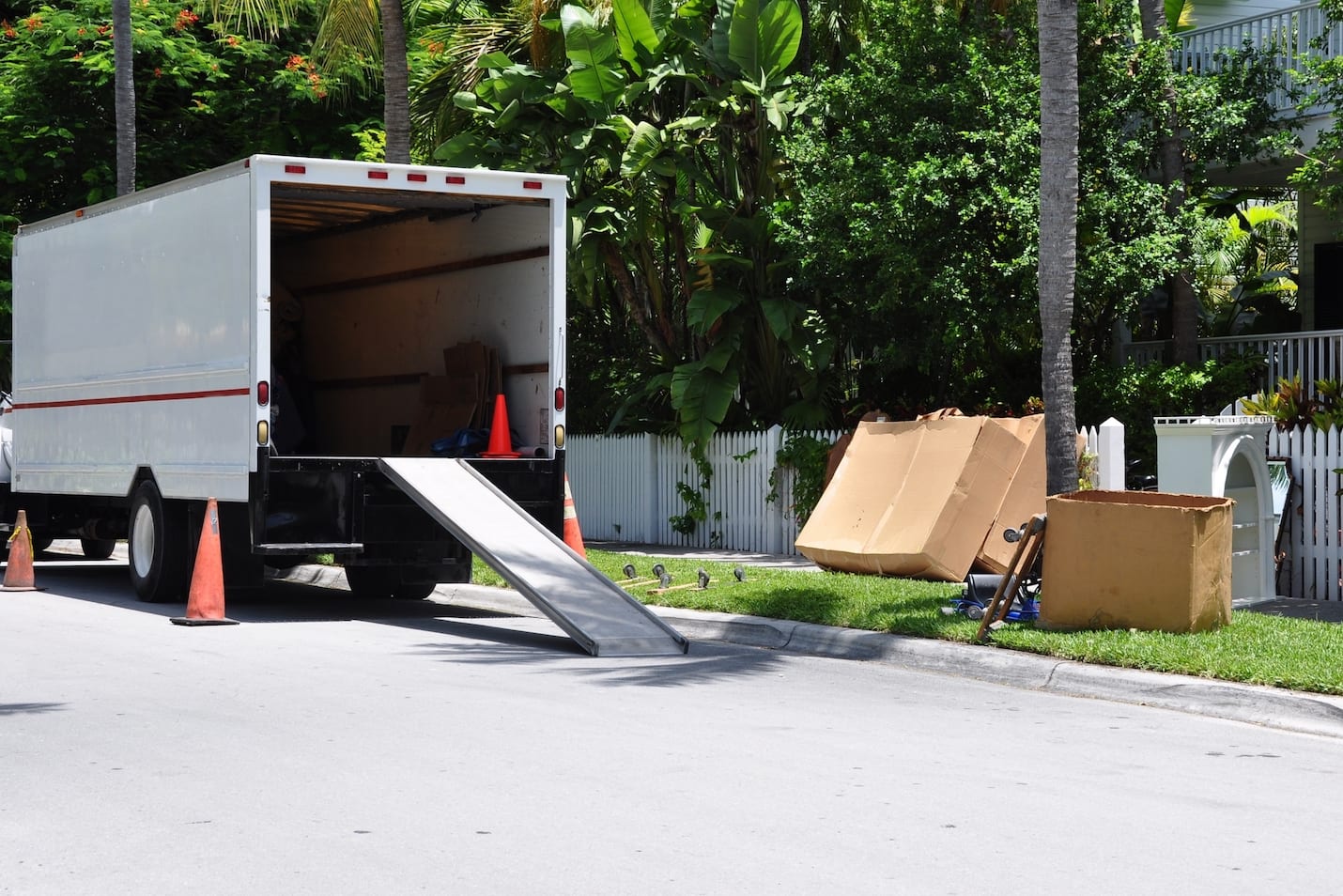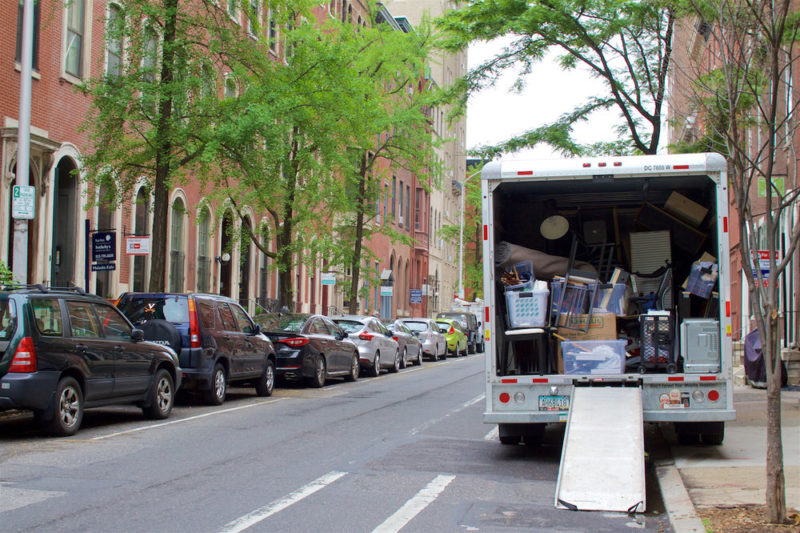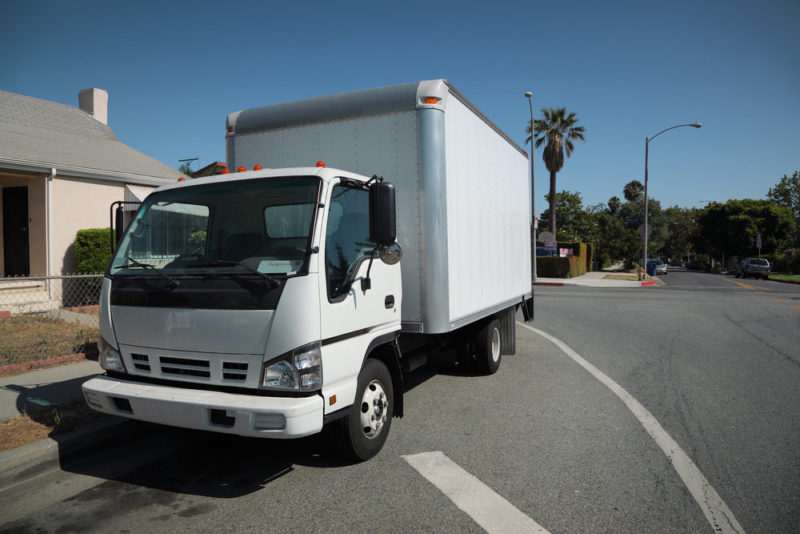Which U.S. Cities Require a Moving Permit

Moving soon? Get organized with our free moving checklist.
Moving is anything but easy. In fact, more often than not, it’s tedious, stressful, and downright exhausting. What is also important to know is that if you’re moving in some U.S. cities, you don’t want to make the mistake of forgetting a moving permit. From booking a moving company to finding time to pack — and the millions of other moving logistics we’ll refrain from mentioning — there’s a lot that goes into planning a move. Now, imagine going through all that work, driving or flying to your new home, and then finding out that you need a moving permit!
Without a moving permit, you could find yourself facing fines or having no place to park your moving truck in your new neighborhood. To make sure your move goes as smoothly as possible, double check what the moving permit requirements are in your new city by reading this guide!
Moving will always be a little stressful, but we’re here to make your move as smooth as possible. Remember to always check if your city requires a moving permit before the big day.

What is a moving permit?
What is a moving permit you ask? Certain cities across the country require movers to have a moving permit if they plan to park their moving truck (or their car, in some cases) in front of an apartment building or walk-up as they move. Moving permits allow moving companies or individuals to legally park their truck or car in front of their new home while they unload all of their belongings.
A moving permit will let you reserve space in front of your home for a moving truck or car to park, using city-provided “No Parking” signs. Generally, you can reserve two legal parking spots next to each other (enough for an average-sized moving truck to park). You can reserve it for specific hours, usually around 8am-5pm. Note, if the space you’re trying to reserve is not a legal parking space, you can’t use it for your move even with a moving permit.
How do I get a moving permit?
To get a moving permit, you must apply through your city’s website. In some cases, a quality moving company may be able to help you with the permit process. Just ask your moving company if they will handle the moving permit for you or if you’re on your own.
You should apply for a moving permit at least 5 days before your move. To be safe, try to get your application in at least two weeks before your move and follow up with your city if you don’t receive your “No Parking” signs by three days before your move.
You should expect to pay between $20-$80 for a one-day moving permit, so make sure you include this cost in your moving budget. For a moving permit that covers extra days or additional space, you will likely have to pay extra. You may also have to pay a higher fee if you need to park your moving truck in metered spaces.
When you purchase your moving permit, your city will explain how you’ll receive your “No Parking” signs. Once they arrive, you will probably have to post the signs yourself. A good rule of thumb is to reserve the spot at least 48 hours in advance of your move by posting the signs on either end of your reserved spaces. Ultimately, be sure to check your city’s specific regulations to understand exactly how your signs should be posted.

Why do I need a moving permit?
Convenience is key when you’re moving. With a moving permit, you’ll shave plenty of time off your parking and move-in process. Plus you’ll avoid the struggle of lugging your boxes from blocks away. If you’re hiring a moving company and paying them by the hour, your moving permit could also save you money. The closer the moving company parks to your new home, the less time they’ll take to unload your belongings, and the less you’ll have to pay.
Along with the advantages of having a moving permit, not having one comes with some frustrating consequences. Since many cities require moving permits, moving companies can refuse to unload your belongings if they can’t find a parking spot close enough to your new home. Additionally, you leave yourself open to getting a parking ticket for double parking. In New York City, for example, this ticket would set you back at least $115.
Which U.S. cities require a moving permit?
While many cities do not require moving permits, they may require other types of permits or licenses. It’s important to check your current or future city’s permit requirements to avoid the risk of getting a ticket on moving day.
Here’s a list of the top 13 U.S. cities that require a moving permit and where you can go to apply for one. Don’t see your city? Be sure to check with your local municipality before attempting to move without a permit, just in case.
California
Illinois
Massachusetts
Washington, D.C. Metro Area
New Jersey
Oregon
Pennsylvania
Washington
Moving will always be a little stressful, but we’re here to make your move as smooth as possible. Just don’t forget to check if your city requires a moving permit before the big day, and you’ll be sure to save yourself loads of stress!
Moving soon? Get organized with our free moving checklist.
Internet and TV tips
Switching providers and don’t know where to start? We can help.













